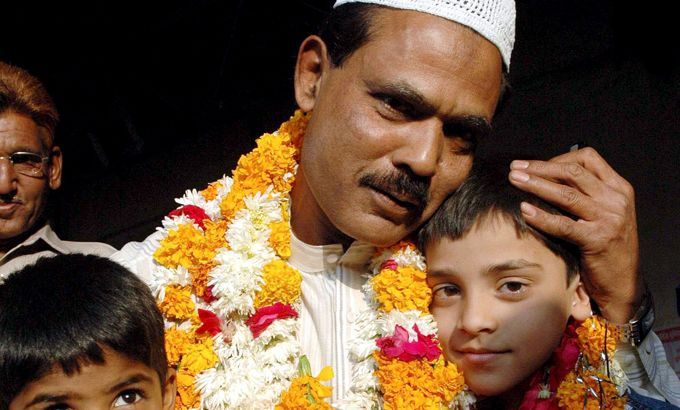
The Luck of the Draw: The Road to Hajj – India
The road to Hajj begins with a draw for India’s 154 million Muslims.
In a series of special programmes, Al Jazeera follows Muslims from around the world as they embark on the Hajj pilgrimage.
India is a land of paradoxes and extreme opposites, a country with a legacy of violence between Hindus and Muslims.
Keep reading
list of 4 itemsMuslim pupil loses UK court bid over Michaela school prayer rituals ban
Photos: Sikhs celebrate harvest festival of Baisakhi, marking new year
Masses gather for Eid celebrations in India
It is also home to more than 12 per cent of the world’s Muslim population – 154 million people.
Hafiz and Qulsum live in one of the most conservative Muslim neighbourhoods of the country’s capital, Delhi.
Hafiz runs a small fish and vegetable market stall and they have both worked hard for the past 30 years to provide a good education for their six children.
With each of their children married and their parental duties discharged, the elderly couple felt that the time had come to perform what they consider to be their utmost duty to God – the Hajj pilgrimage.
But in India, whether you get to go on the Hajj is down to the luck of the draw – literally.
Those who would like to go send in their applications and then lots are drawn.
Wish granted
![Hafiz and Qulsum were selected to perform the Hajj pilgrimage [Al Jazeera]](/wp-content/uploads/2009/11/20091125134023669797_3.jpeg)
It was the first time that Hafiz and Qulsum had applied, but their names were selected.
“Since childhood, I have prayed to God and asked him to call me to his house,” Hafiz says.
“A lot of millionaires have not been able to go. It is not about how rich or poor one is. If Allah wants to call you, you will be able to go.”
One of their sons, Abid, and his wife, Reshum, had hoped to travel with them, but their names were not selected.
“The fact that I could not go is all Allah’s doing. The people who get permission to go are the ones whom Allah wants to call,” Abid says.
“But I am very happy that out of 12,000 people my parents were chosen and that is enough for us.”
Since they found out they had been selected, Abid’s parents have been counting the days until they leave India for Saudi Arabia.
“This is the first time we made a request and the great Allah has granted us our wishes,” Hafiz says.
“We had to spend $2,300 per person. So in total I spent $4,600. When Allah has given so much, we will spend on him also. If we do not we will feel so bad about it.
“Anyone who has saved money should utilise that money on a Hajj trip.”
‘God’s home’
India established a special Hajj committee in 2002 to look after the country’s pilgrims. This body comes under the ministry of external affairs.
While there are also private agencies who handle pilgrimages, those who go through the committee benefit from a government subsidy.
Several special Hajj flights are organised by the government to cater for the Indian pilgrims and a special terminal at Delhi International Airport is set aside for those heading to the Middle East.
| FOR MORE: The Road to Hajj |
| Troubled passage – Panama Islamic revival – Azerbaijan From Xi’an to Mecca – China Islam in the Land of the Rising Sun – Japan |
It is here that hundreds of friends and family come to wave goodbye to those who were selected to perform Hajj. In keeping with Indian culture, garlands are given to those departing.
“I was very happy to go to Hajj. This was what I wished for and the great Allah has granted us this wish,” Qulsum says.
“Now he is calling us to his home and we can go now as we have got our children married and settled. We just wished for Allah to call us to him and he has heard our prayers.”
The Road to Hajj documentary series first aired in 2010.